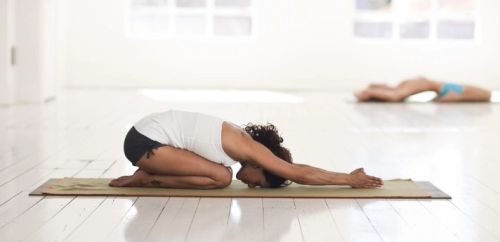Mindfulness: 11 Pillars Of Mindful Thinking

Our brains are designed to be efficient and reactive. That means that in a hectic and stressful world, the brain tries to take stuff off your plate by putting it into autopilot. That autopilot happens to be your subconscious.
But by being on autopilot for a good chunk of our days, many of us suffer from not being fully present at the moment, which can affect our happiness as well as the happiness of those around us.
It can also be a key component in all that stress and anxiety many of us are riddled with. This is because we are not in control of our own thoughts and sometimes our bodies, but we can regain control.
By incorporating a mindfulness practice into our daily life, we can be less reactive and more interactive with our lives. A big part of that mindfulness practice is mindful thinking. By taking yourself out of autopilot, you can be more self-reflective and intentional, and this will change your life greatly.
You first have to be able to execute mindful thinking to its fullest, and we want to assist you in being able to do that. If that sounds good to you, just keep reading, we are going to look deep into this skill and how you can build a successful mindful thinking practice.
What is Mindful Thinking?
Mindful thinking is the core principle of any mindfulness practice. It is basically the process of training your brain to be more aware of its surroundings. This process creates better attention and focus when it comes to every aspect of your life.
It also helps you be more present, which in turn helps you live more intentionally. With a more intentional life, you will see relationships improve and a significant reduction in your stress and anxiety. Basically, with a consistent mindfulness practice, you will be able to lead a happier and healthier life.
The 11 Pillars of Mindful Thinking
Mindful thinking is something that with patience and dedication you can easily learn and reap the benefits from. But in order to do this, you have to understand the pillars of the skill (or the principles if you would rather use that terminology).
Here are the eleven core pillars of the skill. By really taking time to cultivate each, you will be able to utilize mindful thinking every day in all areas of your life to help you live intentionally in the present.
Intention
The base foundation of any mindful thinking practice is intention. When you focus your intention on identifying and working through situations that help create stress and anxiety, you will find yourself better equipped to diffuse the situations which will lead to more awareness and less stress.
Perspective
Being able to see situations in your daily life from different perspectives allows you to not be so reactionary in your emotional responses. The ability to look at things in a new light also can help you relieve yourself of these destructive habits that you have incorporated into your life. A fresh outlook always brings with it a plethora of possibilities.
Patience
When it comes to mindful thinking, patience is key. By being patient, you will be able to take some of the anxiousness out of your life, which will remove some stress as well. After all, patience teaches you that everything will eventually pass, you just have to wait it out and know that sometimes things take time to align themselves properly.
Acceptance
It is what it is! We have all heard this and, that is the crux of this pillar. Acknowledging the moment and experiencing it for what it is. Cultivating the ability to acknowledge your feelings and utilizing your patience allows you to really be present and deal with reality as opposed to the blown-up version of the situation which our minds often build for us.
Nonjudgement
We all do it to some extent – judge people and situations. This coupled with our anxiousness though, only serves to exacerbate the situation. Training your mind to remove itself from the judgment phase of a situation has amazing results on your mental state as well as your life overall. By taking away judgments, you will find yourself on a more balanced playing field and able to empathize with yourself and others on a higher level.
Living In the Moment
Always living in the past or the future can be exhausting and can build walls that are hard to break through. But living in the moment without the urge to change what is happening that moment will let you dissect it better and find ways to move past it. Often when we come up against something stressful, our brains activate that fight or flight mode, and options will lead to wasted energy. Instead, standing in the moment and really thinking about the situation will allow you to handle it without stress or anxiety.
Self-Confidence
Too many times we rely on other people or things to solve our problems. By incorporating mindful thinking into your life you will be able to build your self-confidence and rely on your intuition and capabilities to come up with a solution to your issue.
Flexibility
Fighting against the current is much harder than just drifting with it. Going with the flow, in other words, is a big part of a successful mindful thinking practice. You have to allow for space to feel your feelings so that they don’t build up until your health has been affected. So learning to be flexible with your feelings as well as when hurdles come up in your life will help you practice mindful thinking to its fullest.
Compassion
Compassion for those around you as well as for yourself is also one of the most important pillars of mindful thinking. We are, in essence, our own worst critics, and for those that suffer from stress or anxiety, this is the main reason for their state. Let go and understand that you are a human with flaws, and that is okay. Having compassion for yourself is the best way to start healing and find the peace of mind you are looking for.
Balance
Understanding that life is a constant balance can relieve some of that stress and anxiety. By opening up your perspective and realizing this, you can experience life in a deeper state, which will help you live intentionally and always be present. This deeper state will give you the ability to see people and situations more clearly and cultivate a good foundation for both more compassion and the ability to accept what life has put in your path.
Final Thoughts
The world is filled with constant rivers of information, and this can cause our brains to always be active. A constantly active brain has no way of healing itself or getting the rest it needs to be able to compute all that information the right way. This lack of rest has left us with a world filled with people who are on edge all the time. Taking the time to teach your brain how to slow down and take stock of the here and now can help alleviate mental and emotional stress.
Mindful thinking is, by far, one of the best ways to do that, and we hope that looking at the pillars of the skill has helped you figure out where to start your mindfulness journey. With patience and dedication to this practice, you will be able to begin to live a more intentional life, and that will inevitably lead to a happier you.
















